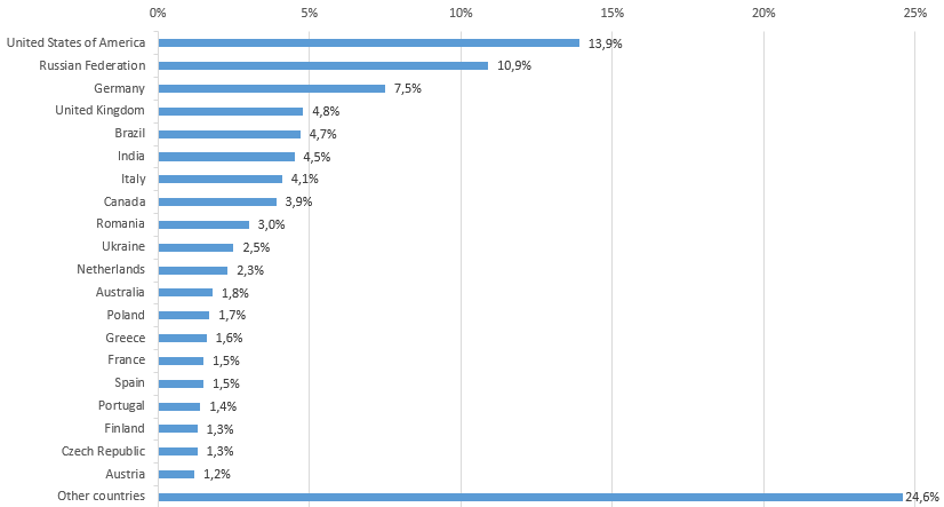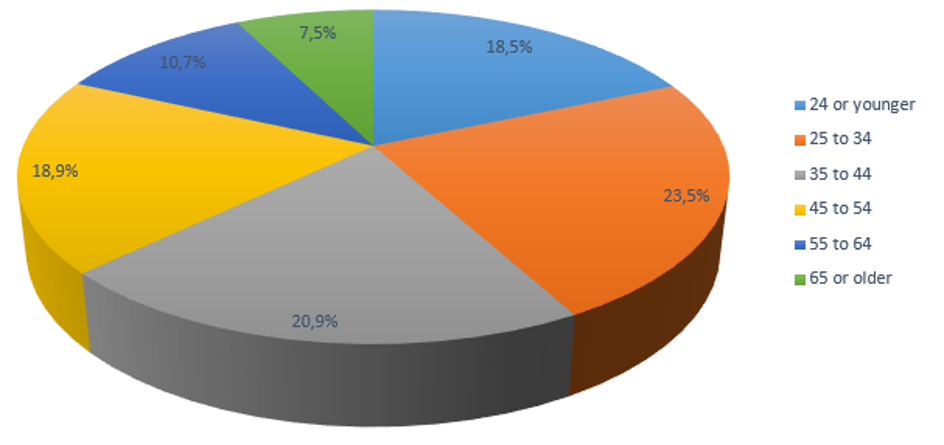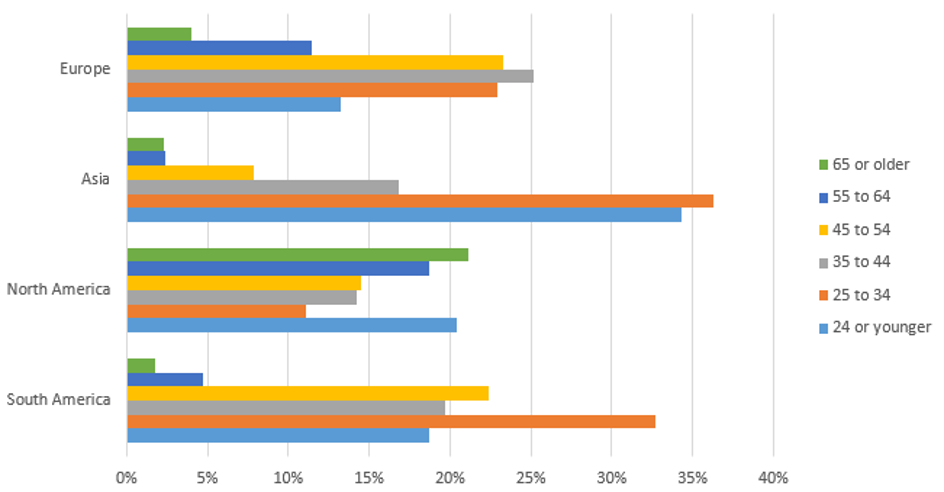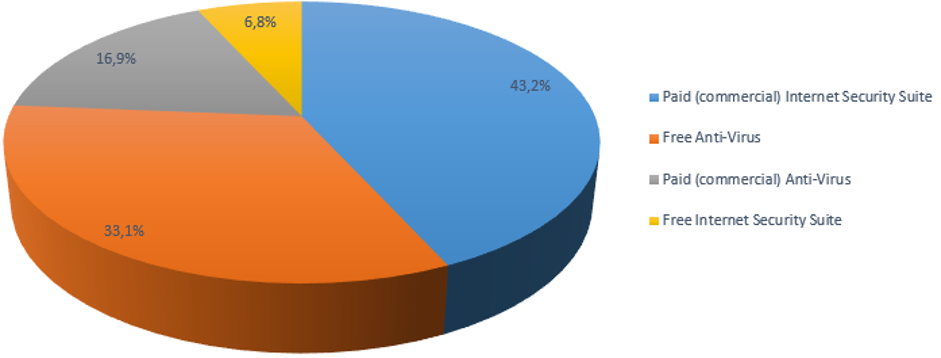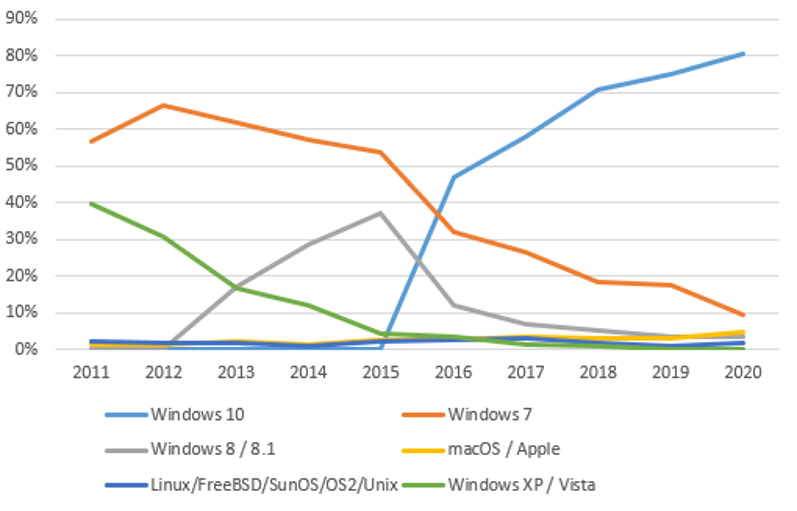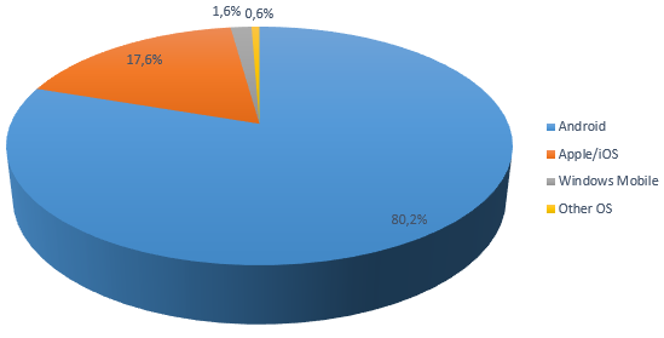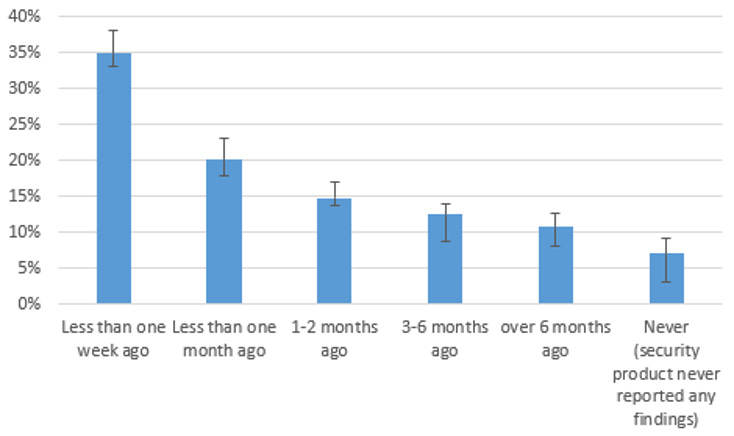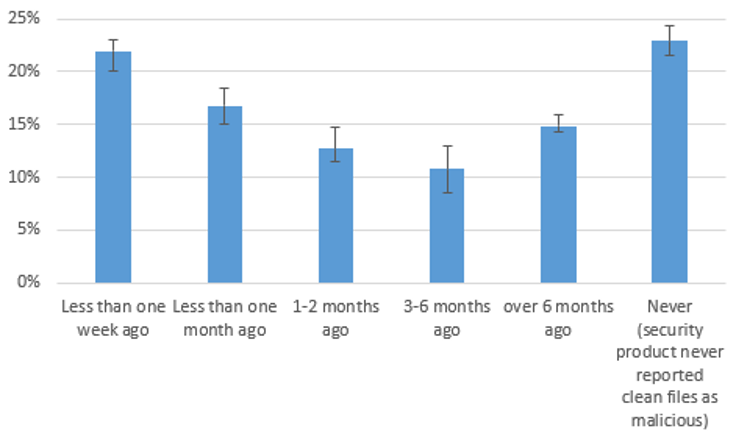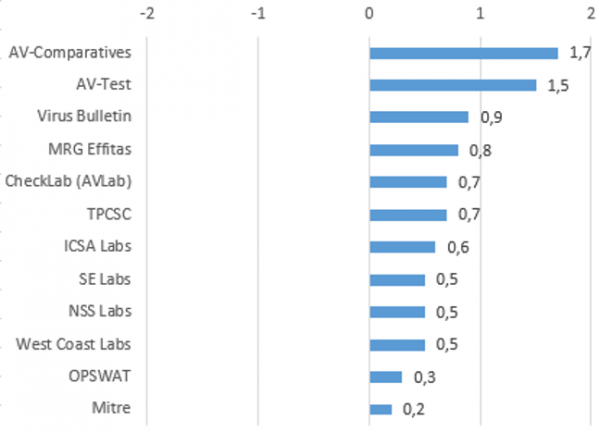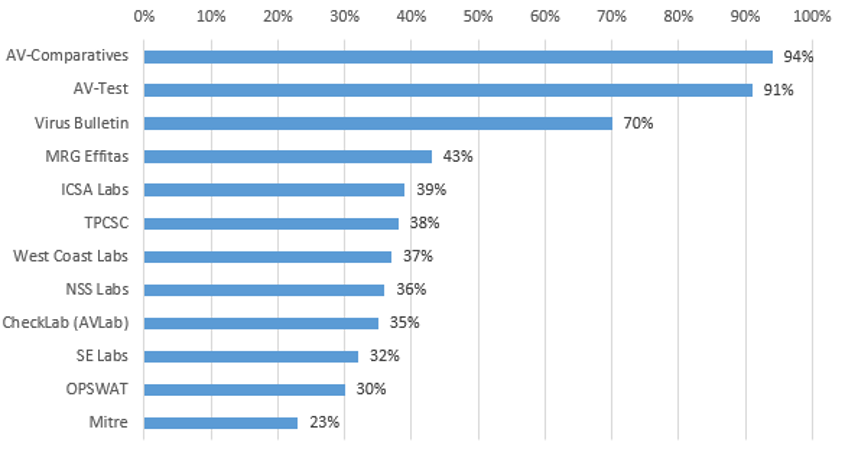We have conducted our annual survey, which helps us to improve our service to the end-user community. Respondents were asked for their opinions on various topics related to anti-virus software testing and anti-virus software in general. We would like to thank everyone who took the time to complete the survey. This survey can be downloaded as PDF from here.
IT Security Survey 2020
Survey Period: 11th December 2019 – 25th December 2019
Valid responses of real users: 2,818
The survey ran for two weeks. It contained various control questions and checks, which helped us to identify and remove invalid responses. As there was no prize draw this year, the number of users who tried to game the survey was lower than last year.
The survey results are invaluable to us. This report contains the results of the survey questions.
Overview
Use of the Internet by home and business users continues to grow in all parts of the world. How users access the Internet is changing, though. The increase in the use of smartphones and tablets to access the Internet has continued, and this has resulted in a drop in desktop and laptop sales. With regard to attacks by cyber criminals, this means that their focus has evolved.
This annual survey of computer users worldwide also focuses on which security products (free and paid), operating systems and browsers are most widely used.
Survey methodology
Report results are based on the Internet survey run by AV-Comparatives between 11th December 2019 and 25th December 2019. A total of 2,818 computer users from around the world answered the questions on the subject of computers and security.
Key Results
Please note that all the points made below refer only to our survey participants, not the general public.
- The number of respondents using Microsoft Windows Defender as a desktop security product has increased considerably, particularly in North America, according to this year’s survey.
- Avast, Bitdefender, ESET, Kaspersky and Microsoft (ordered alphabetically) are the five most popular desktop security products worldwide, and feature in the top five products on every continent.
- Bitdefender is the most popular mobile security solution in absolute number of votes. Bitdefender, Kaspersky, ESET and Avast are the only four mobile AV apps found in the top four on every continent.
- Android remains by far the most popular mobile operating system, being used by approximately four fifths of respondents. iOS is the only other mobile OS to reach double figures, at about 18%.
- The great majority of users (89%) reported no malware infections in the last 6 months. 72% of these uninfected respondents declared that they had encountered malware within this time frame, but their desktop security product had successfully protected their systems against these attacks. About a third of all users stated that their security product had blocked malware within the last week.
- The number of respondents using Windows 10 has risen again this year, leaving Windows 7 with under a tenth of users.
- About 45% of respondents use a Virtual Private Network (VPN).
- Google Chrome is the most popular browser, with approximately half of respondents (44.1%) using it. Mozilla Firefox accounts for a lot of the remaining users, with a share of more than a third (34.1%). Despite being built into the increasingly popular Windows 10, and being Microsoft’s recommended browser on this OS, Microsoft Edge is only used by 5.7% of users overall.
- Some of the test labs we asked users about were much better known than others, with 94% having heard of AV-Comparatives. As regards user confidence, once again we are delighted to be voted the most trustworthy and reliable among the testing labs, and we would like to thank respondents for their confidence in AV-Comparatives.
We are grateful to everyone who completed the survey. The feedback we have gained will be used to ensure that our tests continue to grow in effectiveness and relevance. This enables manufacturers to further improve their products, benefitting both themselves and their users. We are very pleased to see our test results being quoted by other publications in their review of AV and Internet Security products! All AV-Comparatives’ public test results are available to everyone free of charge at www.av-comparatives.org
Age distribution by continent is shown below. Asia had the youngest respondents, with about 71% in the <25 and 25-34 brackets. North America had the oldest respondents, with over 54% of them being in the 45-54, 55-64 or 65+ groups. South America had about 33% in the 25 to 34 age group and Europe had about 25% in the 35 to 44 age group.
Overall, 60.1% of users pay for a security solution. In North America, the number of respondents using a paid Internet security solution declined by about 10% compared to last year. This year, paid Internet security suites are 10% less popular among North American users than among users from the rest of the world .
The most widely used operating system amongst respondents is Windows 10, accounting for over 80% of the total OS usage. Windows 7 is the second most popular system, with just under 10% of participants using it. In North America, Apple’s macOS is more commonly used than in the rest of the world, with about 9% market share. Our review/test of Mac security products is available at https://www.av-comparatives.org/testmethod/mac-security-reviews/
A list of Mac security products can be found here: https://www.av-comparatives.org/list-of-av-vendors-mac/
As shown in the diagram, Google Chrome is the most popular browser amongst survey participants worldwide, with 44.1% of respondents using it. In second place is Mozilla Firefox (34.1%). The Yandex browser is very popular in Russia (17%). Even though approximately 80% of survey respondents use Windows 10, only 5.7% of all participants use the Edge browser (mostly in North America – 8%). Only 0.8% of survey participants still use the Internet Explorer browser, whereas 1.3% use Apple Safari.
Android is the most popular mobile OS with our survey participants, accounting for about 80% of users worldwide. In North America, iOS is more popular than in other regions, accounting for about 28%. In Asia and South America, most users (over 90%) use Android. Our Mobile (Android) security review/test report is available at https://www.av-comparatives.org/testmethod/mobile-security-reviews/
An overview of security products for Android can be found here: https://www.av-comparatives.org/list-of-mobile-security-vendors-android/
According to the survey, almost 45% of users overall make use of Virtual Private Network (VPN) software.
Below are the 20 most common responses:
| 1. NordVPN | 14.0% |
| 2. Windscribe | 10.9% |
| 3. ProtonVPN | 6.6% |
| 4. VPN of my employer/company OR self-hosted VPN | 6.3% |
| 5. Opera VPN | 5.1% |
| 6. Bitdefender Premium VPN | 4.6% |
| 7. Kaspersky VPN | 4.3% |
| 8. F-Secure Freedome | 3.6% |
| 9. Avast SecureLine | 3.5% |
| 10. Private Internet Access | 3.4% |
| 11. ExpressVPN | 3.0% |
| 12. Avira Phantom VPN | 2.6% |
| 13. CyberGhost | 2.6% |
| 14. AnchorFree Hotspot Shield | 1.8% |
| 15. Tunnelbear | 1.6% |
| 16. AVG Secure VPN | 1.6% |
| 17. BrowSec | 1.5% |
| 18. TorGuard | 1.4% |
| 19. HideMyAss | 1.3% |
| 20. Cisco AnyConnect | 1.3% |
| 21. Other VPN software | 19.0% |
40.4% of respondents overall do not use any security solution on their mobile phones.
Worldwide, the ten most commonly used manufacturers of mobile security products are, in decreasing order: Bitdefender, Kaspersky, ESET, Avast, Sophos, McAfee, Norton, Avira, F-Secure and AVG.
The list below shows the 10 most popular mobile security manufacturers used by survey participants, according to continent. There were not enough responses from some regions to produce significant results. Therefore, Australia/Oceania and Africa are not shown.
| Europe | North America | Asia | South/Central America |
|
|
|
|
Bitdefender and ESET were in the top three on all four continents with significant results, and Avast and Kaspersky in the top four.
Major products for mobiles were reviewed by AV-Comparatives in a report in 2019. An overview of these mobile security reviews can be found here: https://www.av-comparatives.org/testmethod/mobile-security-reviews/
AV-Comparatives offers a free scan service (AVC UnDroid) to check Android apps for suspicious traits. It is located at https://www.av-comparatives.org/specials/undroid/
Worldwide, the twelve manufacturers of anti-malware products for Windows platforms most commonly used by survey participants are (in this order): Kaspersky, Microsoft, Bitdefender, ESET, Avast, NortonLifeLock, Avira, F-Secure, McAfee, Panda, AVG and Trend Micro.
On all 4 continents, the same 5 vendors take the top 5 places. These are (alphabetically): Avast, Bitdefender, ESET, Kaspersky and Microsoft. In North America, Microsoft is now clearly the most used AV among the survey participants.
Differences between continents
The table below shows the twelve products most commonly used by survey participants, by continent:
| Europe | North America | Asia | South/Central America |
|
|
|
|
Below are the 15 most-requested consumer/home-user products:
- Kaspersky
- Bitdefender
- ESET
- Microsoft
- Avast
- AVIRA
- NortonLifeLock
- McAfee
- F-Secure
- Trend Micro
- Panda
- AVG
- G DATA
- VIPRE
- Sophos
Below are the 20 most-requested business/enterprise products:
- Kaspersky
- Bitdefender
- ESET
- Microsoft
- Symantec
- Avast
- Sophos
- McAfee
- Trend Micro
- F-Secure
- CrowdStrike
- Panda
- Cisco
- FireEye
- CarbonBlack
- Fortinet
- Palo Alto Networks
- SentinelOne
- MalwareBytes
- Cylance
Most of the popular vendors are usually included in at least some of our public tests and reviews, while most of the other vendors commission separate tests and/or participate privately in certain tests.
About a third of the respondents state that less than a week ago they encountered malware and their security product successfully protected their system. Over 10% of users said that the last time their security product appropriately warned of/protected them against malware was over six months ago. About 8% have never had any warnings from their security product.
Users had to rate various security product testing labs and institutes by giving a score from -2 to +2, where +2 meant reliable/trustworthy and -2 unreliable/biased. Note that not all respondents were aware of all the labs, so each lab was only rated by those who were aware of it. For more information, please see the next page.
AV-Comparatives and AV-Test reached a score higher than 1. Together with Virus Bulletin, they are the best-known AV testing labs in the world. We hope that our high rating is down to the carefully prepared methodology of our tests, meaningful number of samples, transparency, and freely available test reports, which describe the tests in detail. Our willingness to allow other publications to cite our results (subject to proper attribution) also increases our visibility.
3 testing labs received negative ratings (below 0) by our survey participants. They are not shown on the graph above.
For products that are not tested by us, we recommend our readers to look at the tests done by other well-known testing labs or at least certification bodies. For a list of some other testing labs, go to http://www.av-comparatives.org/list-of-av-testing-labs/
Which are the best-known AV testing labs?
We asked which testing labs were known to the survey participants. Obviously, anybody who has seen our website, newsletter or social media accounts will be aware of AV-Comparatives. Consequently, for AV-Comparatives we removed the survey responses that came from via website, our newsletter and our social media accounts, to create a level playing field. Below you can see the percentages of participants that have heard of the respective labs:
Below the testing labs are ranked based on how well they are known on the various continents:
| Europe | North America | Asia | South/Central America |
|
|
|
|
NioGuard, PCSL (Pitci) and SKD Labs are unknown by over 85% all survey participants in all continents and have therefore been removed from the above lists (and will not be included in future surveys).
Please note that not all the testing labs have the same testing focus. That is to say, some may test only business products, others only consumer products; some may only provide certification (i.e. simply verify that products reach a certain minimum level, without providing comparative data); some may limit their tests to products from a particular country or region, or in a certain language.
Copyright and Disclaimer
This publication is Copyright © 2020 by AV-Comparatives ®. Any use of the results, etc. in whole or in part, is ONLY permitted after the explicit written agreement of the management board of AV-Comparatives prior to any publication. AV-Comparatives and its testers cannot be held liable for any damage or loss, which might occur as result of, or in connection with, the use of the information provided in this paper. We take every possible care to ensure the correctness of the basic data, but a liability for the correctness of the test results cannot be taken by any representative of AV-Comparatives. We do not give any guarantee of the correctness, completeness, or suitability for a specific purpose of any of the information/content provided at any given time. No one else involved in creating, producing or delivering test results shall be liable for any indirect, special or consequential damage, or loss of profits, arising out of, or related to, the use or inability to use, the services provided by the website, test documents or any related data.
For more information about AV-Comparatives and the testing methodologies, please visit our website.
AV-Comparatives
(January 2020)






